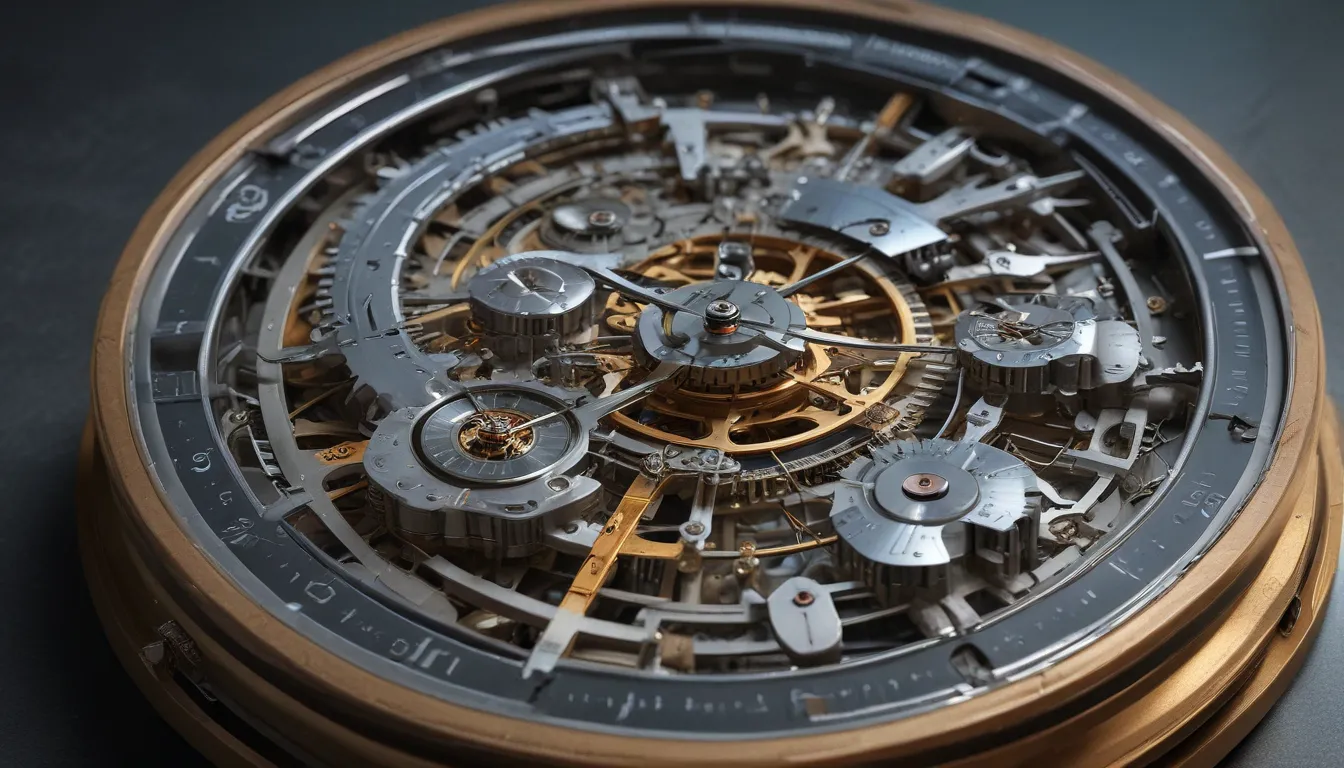A Note About Images: The images used in our articles are for illustration purposes only and may not exactly match the content. They are meant to engage readers, but the text should be relied upon for accurate information.
Welcome to the captivating world of atomic clocks, where precision meets innovation. These incredible timekeeping devices rely on the vibrations of atoms to measure time with unparalleled accuracy. Let’s delve into the inner workings of atomic clocks and explore some fascinating facts that will surely leave you in awe of their capabilities.
Unraveling the Precision of Atomic Clocks
Atomic clocks are the epitome of precision when it comes to measuring time. These remarkable devices are capable of keeping time with an accuracy of one second in millions of years! They operate based on the vibrations of atoms, particularly the oscillations of electrons in atoms. Imagine having a clock that is so accurate it can keep time for millions of years without skipping a beat.
The Behavior of Cesium or Rubidium Atoms in Atomic Clocks
Most atomic clocks utilize either cesium or rubidium atoms. Cesium and rubidium have unique frequency characteristics that make them perfect for timekeeping. The process involves measuring the oscillations of these atoms and using that frequency to determine the exact time. It’s incredible to think that the behavior of these tiny atoms can help us keep track of time with such extraordinary accuracy.
The Crucial Role of Atomic Clocks in GPS Systems
Atomic clocks play a crucial role in the functionality of GPS systems. They provide incredibly precise timing information that helps determine the position of satellites in orbit and calculate accurate distances, making GPS navigation possible. Next time you rely on GPS to find your way, remember that it’s all thanks to the precision of atomic clocks.
Atomic Clocks as Essential Tools in Scientific Research
In scientific research, accuracy is paramount. Atomic clocks are essential tools for various scientific experiments and investigations. They are used in fields such as physics, astronomy, telecommunications, and even in the study of fundamental constants like the speed of light. The reliability and precision of atomic clocks make them indispensable in advancing our understanding of the world around us.
The Connection Between Atomic Clocks and Einstein’s Theory of Relativity
Atomic clocks have a fascinating connection to Einstein’s theory of relativity. According to the theory, time is relative and can be affected by factors such as gravity and velocity. Atomic clocks, with their incredible precision, help validate and study the effects of relativity on time. It’s amazing to see how these clocks not only keep time but also contribute to our understanding of the fundamental principles of the universe.
The Evolution of Atomic Clock Technology Over the Years
Atomic clock technology has come a long way since its inception. Early atomic clocks were bulky and complex, but advancements have led to the development of smaller, more portable versions. These modern atomic clocks can be found in laboratories, universities, and even commercial applications. The evolution of atomic clocks showcases our continuous quest for precision and innovation in timekeeping technology.
Atomic Clocks as the Standard for Global Time Measurement
Atomic clocks serve as the standard for precise time measurement worldwide. International timekeeping organizations use atomic clocks to establish Coordinated Universal Time (UTC), which is used as the basis for timekeeping across different regions and time zones. The accuracy and reliability of atomic clocks ensure that we all stay in sync with each other, no matter where we are in the world.
Monitoring Earth’s Rotation with Atomic Clocks
By constantly measuring time with incredible accuracy, atomic clocks assist scientists in monitoring changes in the Earth’s rotation. These clocks can detect even the slightest variations, contributing to our understanding of the Earth’s movements and facilitating the adjustment of the Coordinated Universal Time (UTC) when necessary. The precision of atomic clocks plays a crucial role in helping us track and understand the subtle changes in our planet’s rotation.
Conclusion
In conclusion, atomic clocks are truly remarkable devices that have revolutionized timekeeping with their unparalleled accuracy. From setting global time standards to aiding in scientific research and space exploration, atomic clocks have become essential in various fields. Their reliability and precision make them indispensable tools that help us navigate and understand the world around us. As technology advances, we can only anticipate further improvements in atomic clock technology, paving the way for even more precise timekeeping.
So, next time you glance at your watch or check your smartphone for the time, take a moment to appreciate the incredible technology behind it all. Atomic clocks play a vital role in our daily lives, silently ticking away to keep us all in sync with each other and with the universe.
FAQs
- How accurate are atomic clocks?
-
Atomic clocks are extremely accurate, with modern versions able to maintain accuracy within a few billionths of a second per day.
-
How do atomic clocks work?
-
Atomic clocks work by measuring the vibrations of atoms, usually cesium or rubidium atoms, as they transition between energy levels.
-
Are atomic clocks used for more than just telling time?
-
Absolutely! Atomic clocks are utilized in various scientific experiments, space exploration, and even in GPS systems for precise positioning.
-
How do atomic clocks help in testing fundamental physics theories?
-
Atomic clocks provide a means to test theories like time dilation and the constancy of physical constants, giving scientists insights into the fabric of our universe.
-
What impact do atomic clocks have in telecommunications?
-
Atomic clocks are crucial in synchronizing telecommunication networks, ensuring the precise timing of data transmission and enabling seamless communication.
-
Are atomic clocks affected by external factors like temperature or magnetic fields?
-
Yes, atomic clocks can be influenced by external factors, but extensive measures are taken to minimize these effects and maintain their accuracy.
-
Can I own an atomic clock for personal use?
-
While atomic clocks are not commonly available for personal use, there are smaller atomic clock variants that can be used as highly accurate desk clocks.
-
What does the future hold for atomic clocks?
- As technology advances, the future of atomic clocks looks promising, with the potential for even greater accuracy and miniaturization, opening up new avenues of scientific inquiry.
Explore the captivating world of atomic clocks and discover the wonders of precision timekeeping. Delve into the inner workings of these remarkable devices and uncover the fascinating facts that make them indispensable in our daily lives. As you journey through the realm of atomic clocks, marvel at the incredible technology that quietly keeps us all in sync with the rhythm of time.






